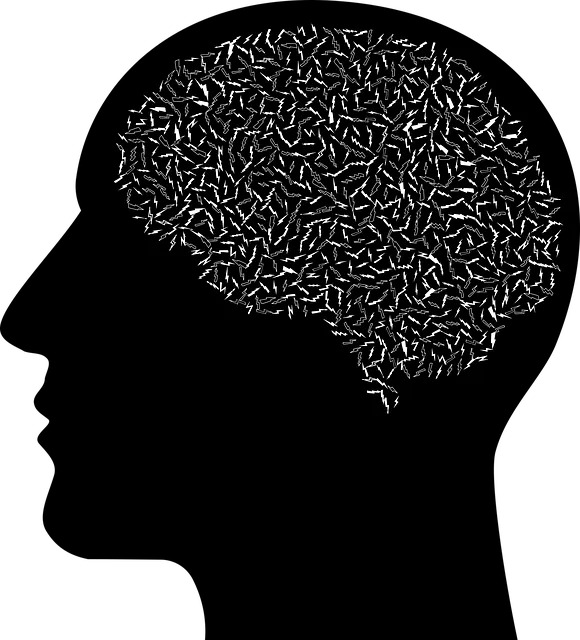Resilience is crucial for mental well-being, and Longmont Kaiser Permanente (LKP) psychiatry services offer a structured framework, RFM (Resilience, Flexibility, Mastery), to enhance it. They provide expert guidance, workshops, and tailored techniques to improve emotional health. The LKP team assesses risk and resilience factors, offering personalized plans with mindfulness, cognitive reframing, and outdoor activities. This holistic approach, including conflict resolution and mental wellness journaling, builds resilience and fosters supportive environments, as evidenced by successful program models. Measuring progress through questionnaires and qualitative feedback ensures tailored community support for improved mental health outcomes. Contact the LKP psychiatry phone number for more information.
“Resilience is a powerful tool for mental well-being, and Longmont Kaiser Permanente psychiatry professionals are at the forefront of promoting this through innovative strategies. This article explores the impact of RFM (Recovery, Flexibility, and Mastery) on building resilience, offering a comprehensive guide for healthcare providers. We delve into how understanding individual resilience can enhance treatment plans, with practical tips for designing effective exercises. Additionally, we discuss implementation strategies within psychiatric care settings, providing insights from leading practices, including success measurement techniques. For those seeking expert guidance, the Longmont Kaiser Permanente psychiatry phone number offers a direct path to specialized support.”
- Understanding RFM and Its Role in Resilience Building
- Identifying Resilient Individuals: The RFM Framework
- Designing Effective Resilience-Building Exercises
- Implementing RFM Strategies in Psychiatric Care
- Measuring Success: Evaluating the Impact of RFM Programs
Understanding RFM and Its Role in Resilience Building

Resilience is a vital component of overall well-being, enabling individuals to navigate life’s challenges and adapt to change. RFM (Resilience, Flexibility, and Mastery) is a structured framework that plays a pivotal role in fostering resilience. This approach recognizes the interconnectedness of an individual’s emotional, mental, and physical health, providing tools to enhance their coping mechanisms. By focusing on these three core pillars, RFM empowers people to better manage stress, regulate emotions, and develop a sense of control over their lives.
For those seeking support in building resilience, Longmont Kaiser Permanente psychiatry services offer valuable resources. Their expertise includes guiding individuals through effective communication strategies and emotional well-being promotion techniques tailored to unique needs. Additionally, they organize Stress Management Workshops designed to equip participants with practical tools and insights for enhancing resilience and overall mental health.
Identifying Resilient Individuals: The RFM Framework

Identifying resilient individuals is a cornerstone of effective mental health care, as it allows for tailored interventions that strengthen coping mechanisms. The RFM framework—a powerful tool in this context—assesses an individual’s risk factors (R), resilience factors (F), and mental health (M). This comprehensive approach helps mental health professionals at Longmont Kaiser Permanente, accessible via psychiatry phone number, to pinpoint areas of vulnerability and build upon protective factors.
By employing the RFM model, mental healthcare providers can navigate complex patient narratives with cultural sensitivity, a key aspect highlighted in Mental Health Policy Analysis and Advocacy. Understanding risk management planning for mental health professionals is integral to this process, as it enables them to create supportive environments that foster resilience, especially when addressing diverse patient populations. This approach ensures that care remains not just reactive but proactive in promoting well-being.
Designing Effective Resilience-Building Exercises

Designing effective resilience-building exercises involves tailoring activities to suit diverse participant needs and backgrounds. At Longmont Kaiser Permanente psychiatry phone number, we’ve found success with a multi-faceted approach that includes both individual and group initiatives. Starting with assessments to understand current coping mechanisms and stress triggers, our team creates personalized plans incorporating evidence-based techniques like mindfulness meditation, cognitive reframing, and positive thinking exercises.
These sessions are designed to foster emotional regulation skills, teaching participants how to navigate challenging situations with enhanced resilience. Engaging formats such as interactive workshops, guided visualizations, and even outdoor activities promote active participation and make learning memorable. By consistently emphasizing the importance of self-care and encouraging open discussions, we help individuals build a robust framework for managing stress effectively, ultimately improving their overall well-being.
Implementing RFM Strategies in Psychiatric Care

Implementing RFM (Resilience, Flexibility, and Mindfulness) strategies in psychiatric care is a transformative approach gaining traction, especially in settings like Longmont Kaiser Permanente. This innovative method leverages techniques such as Mental Health Policy Analysis and Advocacy to foster a supportive environment that enhances patient resilience. By integrating Conflict Resolution Techniques into routine care, healthcare providers can improve communication and relationship building, which are cornerstone elements of effective treatment plans.
RFM exercises, including Mental Wellness Journaling Exercise Guidance, not only empower patients but also equip them with tools to navigate life’s challenges. These exercises promote self-awareness, emotional regulation, and adaptive coping strategies, ultimately contributing to improved mental health outcomes. The Longmont Kaiser Permanente psychiatry phone number serves as a crucial point of contact for individuals seeking guidance and support in adopting these transformative practices.
Measuring Success: Evaluating the Impact of RFM Programs

Measuring success is a critical aspect of any resilience-building program, and RFM (Recovery, Resilience, and Mental Health) initiatives are no exception. To evaluate the impact of RFM exercises, various metrics can be employed, offering valuable insights into participants’ progress and overall well-being. One effective method involves tracking self-reported changes in mental health status using standardized questionnaires. These tools assess symptoms of anxiety, depression, and post-traumatic stress disorder (PTSD), providing a quantitative measure of improvement.
Additionally, qualitative feedback from participants through surveys or focus groups can offer profound insights into their experiences. This includes identifying specific Communication Strategies that resonated with them, the impact of Confidence Boosting exercises on daily life, and how Mental Wellness Journaling Exercise Guidance contributed to their overall mental wellness. By combining quantitative data with rich qualitative information, organizations like Longmont Kaiser Permanente’s psychiatry phone number can tailor programs to better meet the needs of their community, fostering a more resilient and supportive environment.
Resilience is a powerful tool for enhancing mental well-being, and the RFM framework offers a structured approach to building this crucial resource. By identifying resilient individuals and designing tailored exercises, healthcare providers like those at Longmont Kaiser Permanente can effectively support patients’ resilience. Implementing these strategies in psychiatric care not only empowers individuals to navigate challenges but also fosters long-term recovery and improved quality of life. For more information, interested readers can contact the Longmont Kaiser Permanente psychiatry department via phone for personalized guidance and program inquiries.






